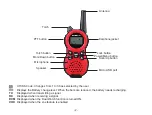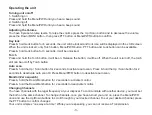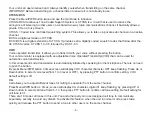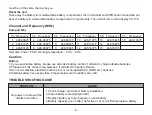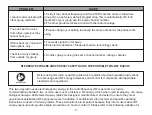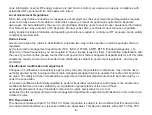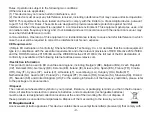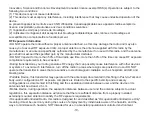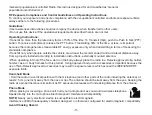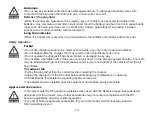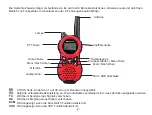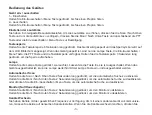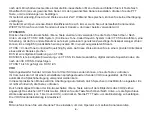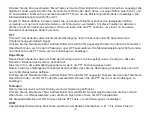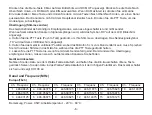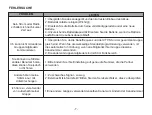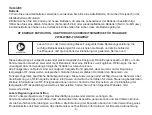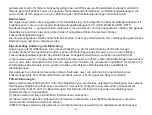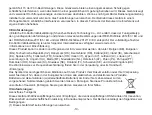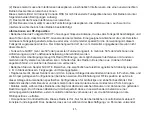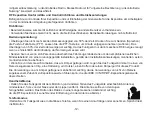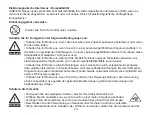
•General population/uncontrolled Radio, this radio is designed for and classified as “General
population/uncontrolled Use”.
RF Exposure Compliance and Control Guidelines and Operating Instructions
To control your exposure and ensure compliance with the occupational/controlled environment exposure limits,
always adhere to the following procedures.
Guidelines:
•User awareness instructions should accompany the device when transferred to other users.
•Do not use this device if the operational requirements described herein are not met.
Operating Instructions:
•Transmit no more than the rated duty factor of 50% of the time. To Transmit (Talk), push the Push to Talk (PTT)
button. To receive calls (listen), release the PTT button. Transmitting 50% of the time, or less, is important
because the radio generates measurable RF energy exposure only when transmitting in terms of measuring for
standards compliance.
•Transmit only when people outside the vehicle are at least the recommended minimum lateral distance away
from a properly installed according to installation instructions, externally mounted antenna.
•When operating in front of the face, worn on the body, always place the radio in a Retevis approved clip, holder,
holster, case, or body harness for this product. Using approved body-worn accessories is important because the
use of Non-Retevis approved accessories may result in exposure levels, which exceed the IEEE/ICNIRP RF
exposure limits.
Hand-held Mode
• Hold the radio in a vertical position with the microphone (and other parts of the radio including the antenna) at
least 2.5 cm (one inch) away from the nose or lips.The antenna should be kept away from the eyes. Keeping the
radio at a proper distance is important as RF exposure decreases with increasing distance from the antenna.
Phone Mode
•When placing or receiving a phone call, hold your radio product as you would a wireless telephone.
Speak directly into the microphone.Electromagnetic Interference/Compatibility
NOTE:
Nearly every electronic device is susceptible to electromagnetic
interference (EMI) if inadequately shielded, designed, or otherwise configured for electromagnetic compatibility.
Avoid Choking Hazard
-11-



